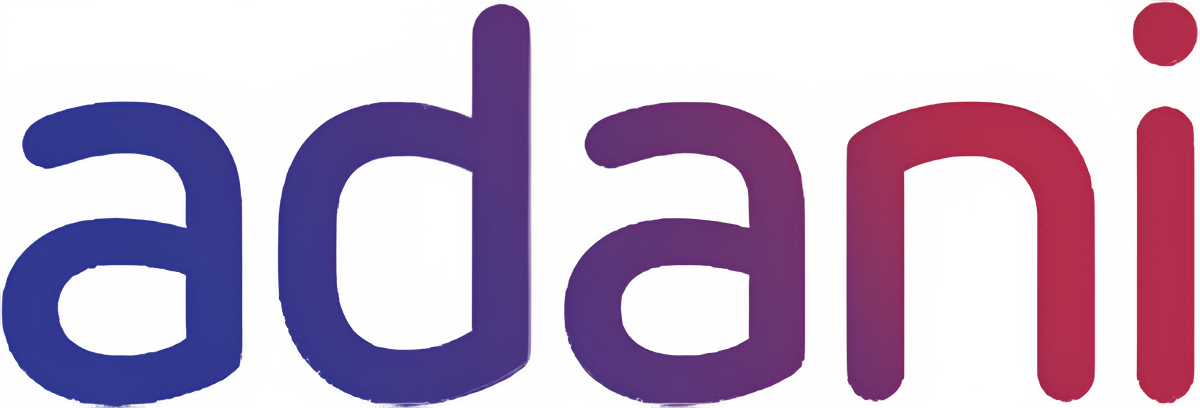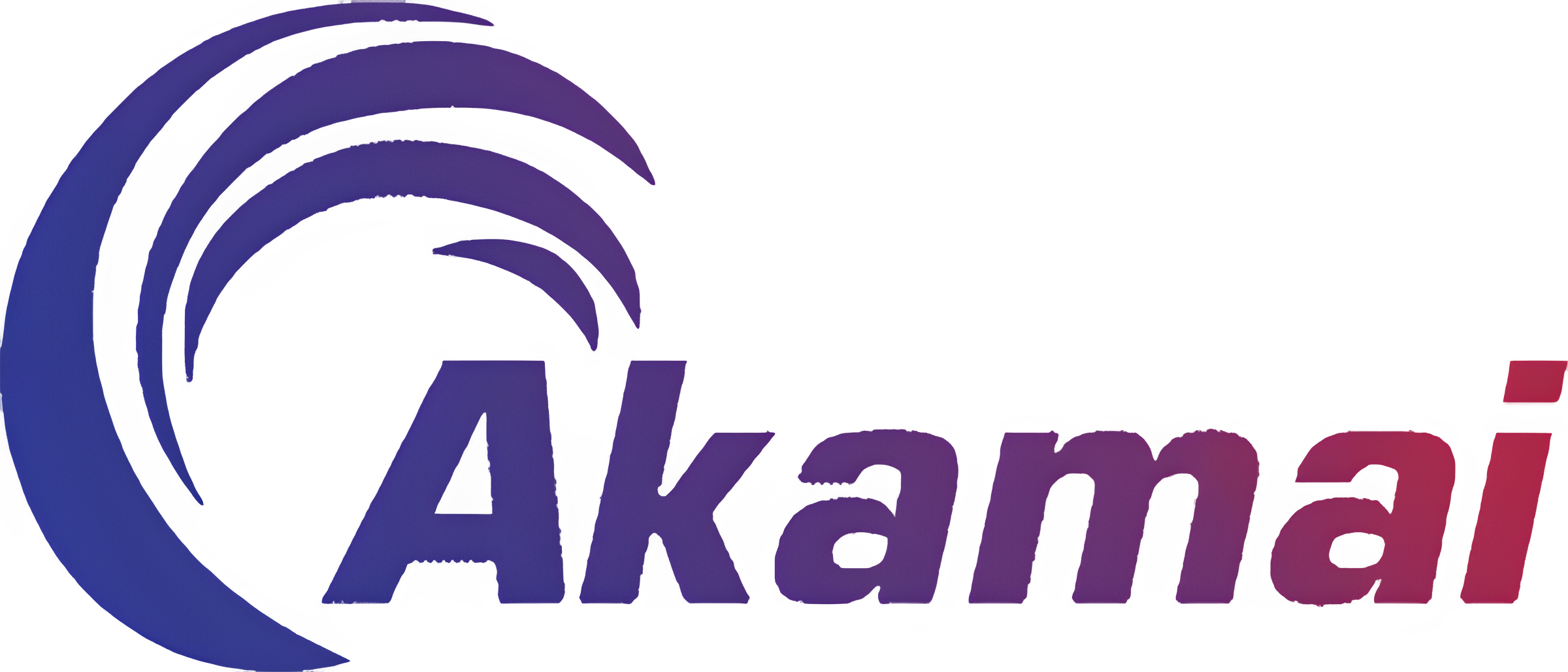Which Logistics Software Development Company Is Right for You?
Choosing the right logistics software development company can make or break your organization’s ability to streamline operations, reduce costs, and improve customer satisfaction. The logistics landscape has evolved rapidly, with on-demand delivery, real-time tracking, warehouse automation, and route optimization becoming essential components of modern supply chains. However, not all software providers are created equal. From specialized logistics app development company offerings to full-scale software development company solutions, businesses face a dizzying array of options. In this blog, we will explore the factors you should consider when selecting a partner for your logistics technology needs, compare different types of providers, and explain why Dinoustech Private Limited may be the ideal choice to help your operations thrive.
Understanding Your Logistics Software Needs
Before diving into the search for a logistics software development company, it is crucial to define your specific requirements. Every organization has unique challenges, whether it’s last-mile delivery for e-commerce, fleet management for trucking, or warehouse management for retail distribution. Begin by assessing your current pain points: Are deliveries arriving late? Is real-time tracking unavailable? Are manually intensive processes slowing down warehouse throughput? By mapping out existing workflows, you can pinpoint where a technology solution would deliver the greatest impact. These early insights will guide you in selecting a provider with expertise in customizing software for your particular segment of the logistics industry.
Core Features Essential for Logistics Software
Once you have identified your pain points, compile a list of essential features your logistics platform must include. A robust system typically comprises real-time GPS tracking, automated route optimization, predictive ETAs, warehouse inventory control, order management, and reporting dashboards. In addition, integrations with third-party carriers, e-commerce marketplaces, and enterprise resource planning (ERP) systems often prove indispensable. While a generalized software development company might offer out-of-the-box modules, a specialized logistics software development company can tailor each component to your business processes. Look for providers that offer modular development approaches so you can start with critical features—such as dynamic routing—and gradually expand to include advanced analytics or IoT-based asset tracking.
👉 Also Read: - Why Logistics Software Development Is Essential for Modern Supply Chains
Evaluating Provider Expertise and Industry Experience
The best logistics software partners combine technical prowess with deep domain knowledge. A logistics app development company focused exclusively on supply chain and transportation solutions will understand industry-specific terminologies, regulatory requirements, and emerging trends like hyperlocal distribution or cold chain management. Conversely, a broad-spectrum software development company may excel at general-purpose applications but struggle to address the nuances of logistics workflows. When evaluating potential partners, inquire about their past projects: Did they build a cross-docking system for a large retailer? Have they developed a digital freight marketplace or a real-time driver dispatch app? Requesting case studies or client references pertinent to your industry segment is an excellent way to verify claims and assess the provider’s capacity to deliver results.
Comparing Different Types of Providers
Not all providers approach logistics software the same way. Below are common categories you may encounter:
- Specialized Logistics App Development Companies
These firms build mobile and web-based applications designed explicitly for logistics operations. Their core strength lies in creating intuitive driver-facing apps for route guidance, proof-of-delivery capture, and instant messaging. They often excel at integrating GPS, telematics, and mapping services, making them ideal for last-mile delivery and fleet management solutions. - End-to-End Logistics Software Development Companies
Such providers offer full-stack services—from front-end user interfaces to back-end warehouse management systems. They typically handle everything: solution architecture, database design, server infrastructure, mobile apps, web portals, and maintenance. Their comprehensive approach is suited for enterprises seeking a turnkey solution that covers admin dashboards, customer portals, and driver apps in a single platform. - General Software Development Companies
These are IT firms that cater to a broad range of industries, including finance, healthcare, retail, and logistics. While they have the resources and engineering talent to build sophisticated software, they may lack specialized domain knowledge in supply chain intricacies. If your requirements are more straightforward or if you prioritize cost savings over deep logistics expertise, a generalist provider may suffice, but you may need to offer them more guidance on industry best practices. - Hybrid or Niche Providers
Some companies occupy a middle ground: they have a strong logistics background but also develop solutions in other verticals. These hybrid firms can offer balanced expertise, especially if your project requires cross-industry integrations—for instance, a logistics app that ties into a healthcare supply chain or an agricultural distribution network.
Key Considerations When Selecting a Provider
Regardless of provider category, several universal factors should guide your decision:
- Scalability and Flexibility
Examine whether the provider’s architecture can accommodate future growth. A platform that works for ten trucks may not scale efficiently to manage a fleet of thousands. Ask about their approach to load balancing, microservices, and cloud deployments. An affordable software development company invested in scalable cloud-native practices will likely offer better performance under load. - Customization and Extensibility
Out-of-the-box solutions can accelerate time to market, but they may not fit your unique workflows. Ensure the provider offers customization options for modules such as dynamic pricing, multiple carrier integrations, or specialized reporting filters. A logistics app development company accustomed to building bespoke dashboards and APIs can modify the system as your business evolves. - User Experience and Interface Design
Intuitive UI/UX matters in logistics because frontline workers—from warehouse staff to drivers—interact with these systems on a daily basis. Applications riddled with complexity lead to low adoption rates. When evaluating providers, request to see prototypes or design mockups. A website development company specializing in user-centric design will place emphasis on easy navigation, clear labeling, and responsive design that works across desktop and mobile devices. - Integration Capabilities
Modern logistics rarely operate in a silo. Your platform must communicate with ERP systems, e-commerce platforms, payment gateways, fuel card providers, and possibly IoT sensors in refrigerated trucks. Ask how each provider has handled integrations in previous projects. Those who have connected disparate systems—like integrating RFID-based warehouse scanners or linking to a third-party freight broker’s API—bring invaluable experience to complex integration scenarios. - Cost Structure and Pricing Models
Understand how the provider charges: Is it a fixed-price project, time-and-materials, or a subscription-based SaaS model? Transparent pricing helps you allocate budget accurately. Some transportation software development services offerings come with hidden fees for extra modules, API calls, or ongoing support. Seek a partner willing to clearly outline all potential costs and propose a phased development plan that aligns with your financial constraints. - Security and Compliance
Logistics data often contains sensitive information—customer addresses, inventory levels, delivery schedules, and billing details. Any provider you consider must follow industry-standard security protocols, such as encryption at rest and in transit, secure authentication mechanisms, and vulnerability testing. Additionally, compliance with regional regulations—such as GDPR for European operations or CCPA in California—ensures that data privacy laws are respected. Look for providers that undergo regular security audits and maintain certifications (ISO 27001, SOC 2, etc.) to demonstrate their commitment to data protection. - Support and Maintenance
The best software is only as good as the team that maintains it. Post-deployment support, bug fixes, system updates, and feature enhancements are ongoing requirements. A reliable logistics app development company offers service-level agreements (SLAs) with guaranteed response times, dedicated support channels, and scheduled maintenance windows to minimize downtime. Clarify the provider’s policy on critical issue resolution, version upgrades, and ongoing performance monitoring.
👉 Must Read: - Top 10 Must-Have Features in Logistics Software Development
Evaluating Case Studies and Client Testimonials
One of the most telling ways to determine if a provider is right for you is by examining real-world examples of their work. A logistics software development company should readily share case studies demonstrating how they transformed a client’s supply chain operations—whether by reducing delivery times, lowering fuel costs, or increasing warehouse throughput. These success stories often highlight the provider’s problem-solving approach, development process, and post-launch support. Additionally, client testimonials and online reviews offer insights into communication quality, project management skills, and the provider’s ability to meet deadlines. When researching candidates, try to find companies that have worked with businesses of a similar scale and complexity to your own.
Comparing Platforms and Technology Stacks
Different providers employ different technology stacks, each with its own strengths and limitations. A logistics app development company might opt for a Node.js-based microservices architecture to achieve real-time performance, whereas a large-scale software development company could favor Java or .NET for enterprise-grade stability. Meanwhile, front-end frameworks like React or Angular contribute to dynamic web portals, whereas native mobile apps for iOS and Android rely on Swift and Kotlin, respectively. Additionally, some providers leverage cloud-native technologies—such as AWS Lambda, Kubernetes, or Docker—to ensure reliability and rapid scalability. By requesting a technology overview from each candidate, you can evaluate which stack best aligns with your existing IT environment and long-term roadmap. A website development company with experience in responsive design can ensure that client-facing dashboards render perfectly across devices.
Estimating Timeframes and Delivery Milestones
Time-to-market is often a critical factor, particularly if you are trying to gain an edge over competitors. Ask each prospective provider for a detailed project plan, including estimated timelines for discovery, prototyping, development, testing, and deployment. A logistics software development company focused solely on supply chain solutions may have off-the-shelf modules that reduce development time, whereas a more generalized software development company may require custom coding from scratch. Request clear milestones—such as UX sign-off, alpha release, user acceptance testing (UAT), and go-live dates—so you can track progress and hold the vendor accountable. Avoid providers who give overly optimistic timelines without evidence of prior deliveries.
Budgeting for Development and Beyond
Developing a robust logistics platform involves investment beyond just coding costs. Your budget should account for license fees (if any), hosting and infrastructure, API usage charges for mapping and tracking services, and post-launch maintenance. When discussing budgets with a potential partner, ensure you understand how digital services are priced—whether through a fixed-cost model or an hourly rate. A logistics software development company may offer a subscription-based SaaS model, which can be more predictable from a budgeting standpoint, whereas a custom-built solution with a software development company might require significant upfront capital. Factor in costs for periodic updates, scaling server capacity as your user base grows, and integrating new technologies such as AI-driven analytics or blockchain-enabled tracking.
👉 Also Read: - How Much Does It Cost to Develop Logistics Software?
Assessing Communication and Cultural Fit
Effective collaboration hinges on clear communication and a shared understanding of project goals. Look for providers that demonstrate transparency, regularly scheduled status updates, and a willingness to adapt to your communication preferences—be it email, Slack, Microsoft Teams, or in-person meetings. Cultural fit goes beyond language fluency; it also encompasses work ethic, time zone alignment, and responsiveness. A website development company that excels in UI/UX must also communicate design decisions in a way non-technical stakeholders can understand. If your headquarters operate in a different time zone, inquire about the provider’s flexibility in scheduling calls and delivering rapid feedback. In many cases, a provider that invests in building a genuine partnership will yield better outcomes than one solely focused on transactional relationships.
Weighing the Pros and Cons of Offshore vs. Onshore Development
One significant decision when choosing a logistics software partner is whether to engage an offshore company or hire a local, onshore provider. Offshore firms often provide cost advantages and round-the-clock coverage due to time zone differences. However, challenges may include language barriers, varying quality standards, and less direct oversight. On the other hand, onshore or nearshore providers offer greater cultural alignment, easier face-to-face interactions, and typically more stringent regulatory compliance. Check references and portfolios carefully to weigh the trade-offs. A reputable logistics app development company with experience in global deployments—such as Dinoustech Private Limited, can offer a hybrid approach, maintaining communication flows that suit your business hours while ensuring stringent quality controls and data security.
The Role of Emerging Technologies in Logistics
Logistics software no longer operates in isolation; it increasingly incorporates cutting-edge technologies to drive efficiency. Artificial intelligence (AI) and machine learning (ML) algorithms help predict demand, optimize routes, and automate inventory replenishment. Internet of Things (IoT) devices—such as RFID tags, temperature sensors, and telematics—provide real-time data on shipments and vehicle status. Blockchain, though still in early stages, offers immutable transaction records that enhance transparency across the supply chain. Some providers have already integrated AI-driven warehouse robots or driverless vehicles into their solutions. When evaluating a software development company, ask how they stay abreast of emerging trends and whether they can integrate these technologies into your roadmap. A forward-thinking provider can position your platform for future upgrades, ensuring you don’t fall behind as logistics innovations continue to accelerate.
👉 Also Read: - Make a Logistics App Like Porter for Hyperlocal Deliveries
Regulatory Compliance and Data Privacy
In today’s environment, logistics providers must navigate a complex web of regulations—from customs protocols for cross-border shipments to local laws governing driver safety and labor practices. Additionally, consumer data privacy regulations such as GDPR in the EU or CCPA in California impose strict rules on how personal information is collected, stored, and transmitted. A logistics software development company must incorporate these requirements into the solution architecture from day one. Look for providers that conduct thorough risk assessments, maintain clear audit trails, and implement role-based access controls. Furthermore, if your supply chain handles specialized goods—such as pharmaceuticals requiring temperature-controlled transport—your software must comply with Good Distribution Practice (GDP) guidelines. Confirm that your provider has experience in developing systems that pass regulatory audits without costly rework.
Post-Implementation Support and Continuous Improvement
Launching your logistics platform is not the end of the journey; in fact, it is just the beginning. After go-live, you will need ongoing support for bug fixes, feature enhancements, and performance optimizations. A software development company with a dedicated support team can provide 24/7 monitoring, rapid incident response, and scheduled maintenance windows to minimize disruptions. Continuous improvement is equally important—analysing user feedback, tracking key performance indicators (KPIs), and rolling out incremental upgrades ensure that your platform remains relevant and efficient. Establish clear Service Level Agreements (SLAs) that specify response times, uptime guarantees, and escalation procedures. Providers like Dinoustech Private Limited excel in offering post-implementation care, leveraging their multidisciplinary teams to refine features based on real-world usage data and user insights.
👉 Must Read: - Top Benefits of Investing in Logistics Software Development
Cost-Benefit Analysis of Vendor Options
When reviewing proposals from multiple vendors, conduct a cost-benefit analysis to compare total cost of ownership (TCO) across providers. Include not only development fees but also long-term maintenance expenses, infrastructure costs, licensing fees, and potential customization charges. Assess the intangible benefits of specialized expertise—such as the ability of a logistics app development company to reduce delivery times by 20% through optimized routing, thereby saving thousands in fuel costs. Contrast that with a lower-cost, generalist software development company whose generic solution might miss critical logistics nuances, leading to higher operational overheads down the line. By estimating ROI based on improved efficiency, reduced downtime, and enhanced customer satisfaction, you can justify the investment in a provider that delivers value beyond just code.
Building a Long-Term Partnership
Finally, look for a partner who sees your relationship as collaborative rather than transactional. A company that invests time in understanding your business goals, demonstrates flexibility when priorities shift, and provides thought leadership on emerging logistics trends will become a trusted advisor. Instead of rushing through contract negotiations, take time to define joint objectives, governance models, and communication protocols. Seek a provider that encourages regular roadmap review sessions, workshops, and innovation sprints—ensuring that your platform evolves in lockstep with market demands. A strong partnership not only yields better software outcomes but also fosters a culture of shared success, enabling both parties to grow sustainably in the competitive logistics ecosystem.
👉 Also Read: - Build a Scalable Logistic Management Software: Step-by-Step Guide
Why Dinoustech Private Limited Is an Ideal Choice
If you are searching for a reliable, innovative, and customer-centric logistics software development company, look no further than Dinoustech Private Limited. With a proven track record of developing end-to-end logistics platforms, Dinoustech’s team combines deep domain knowledge with technical excellence. Our services span custom mobile and web app development, cloud infrastructure setup, AI/ML-driven analytics, and ongoing support. As a seasoned logistics app development company, we understand the complexities of fleet management, last-mile optimization, warehouse automation, and freight marketplace solutions. By integrating best-in-class UI/UX design practices—leveraging expertise from our website development company partners—we ensure that every touchpoint, from driver dispatch screens to executive dashboards, is intuitive and user-friendly.
Dinoustech’s approach begins with a comprehensive discovery phase, where we map out your unique workflows, pain points, and long-term objectives. We then provide a clear roadmap that outlines phased deliverables, timeline estimates, and cost breakdowns. Throughout development, we maintain transparent communication, conduct regular sprint reviews, and incorporate feedback swiftly. Post-launch, our dedicated support team monitors system performance, applies security patches, and iterates features based on user feedback and analytics data. Whether you operate a small regional courier service or manage a global supply chain network, Dinoustech’s scalable solutions adapt to your business size and growth trajectory.
Conclusion
Selecting the right logistics software development provider is a critical decision that can shape your organization’s efficiency, customer satisfaction, and competitive edge. By clearly defining your unique requirements, evaluating provider expertise, comparing technology stacks, and assessing cost-benefit trade-offs, you can make an informed choice. While generalist software development companies may offer cost-effective solutions, a specialized logistics software development company brings industry-specific knowledge that can drastically reduce implementation risks and accelerate ROI. Ultimately, fostering a long-term partnership—rooted in transparent communication, mutual trust, and continuous improvement—ensures that your logistics platform remains agile and future-ready. If you seek a proven partner, Dinoustech Private Limited stands out as the premier choice. With deep logistics domain expertise, a commitment to quality, and a collaborative mindset, we are poised to help your business navigate today’s dynamic supply chain challenges and achieve sustained success.

















